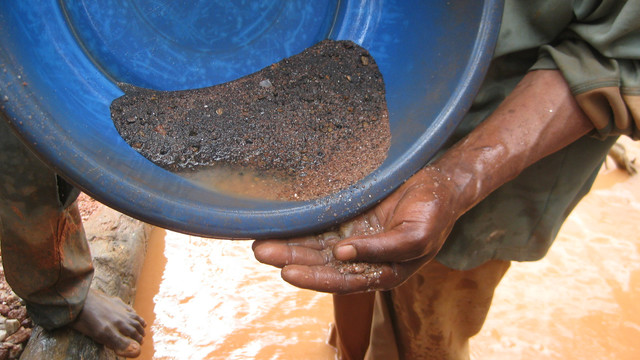
IIED's staff worked was among those at COP27, in Sharm el-Sheikh, demanding and working hard for climate action, and the institute is also taking internal action (Photo: UN Climate Change, via Flickr, CC BY-NC-SA 2.0)
During 2022, IIED identified five strategic objectives to improve its environmental sustainability and responsible operations. Based on an internal review conducted by staff in 2020, the five objectives are to:
- Promote ethical pensions, banking and procurement
- Create low environmental impact office working environments
- Show environmental leadership and campaigning
- Reduce our travel-related carbon footprint, and
- Promote and support an environmentally aware workforce.
A comprehensive set of actions was identified related to these objectives and an internal environmental improvement group was created to support their delivery. An environment champions network was also set up to engage staff and help identify new ideas for improvements.
The environmental improvement group has started work to develop an IIED sustainability strategy. This will set out a clear, long-term plan for delivering improvements across the environmental and social impacts of the organisation.
IIED’s board of trustees has also discussed the development of a net-zero strategy to reinforce the institute’s intentions on decarbonisation, and help to set expectations on the scale of changes required and the timeframe.
Emissions data was collected throughout 2022 and in February 2023 the final calculations were being made to report IIED’s carbon footprint as accurately as possible. This information will be added to this page when available, and will support the development of plans for an ambitious but realistic reduction target for the next 3-5 years.
Progress so far
We made some significant changes during 2022 that affected our environmental impact.
Ethical pensions
As part of our objective to promote ethical finance, we signed up to the Make My Money Matter campaign and carried out a review of our workplace pension plan, including the range of ethical investments offered.
Recommendations of schemes with strong environmental stewardship considerations were provided to the board of trustees and IIED changed pension providers to Aviva from 1 January 2023.
Environmental workplan
Among the strategic and operational level changes implemented in 2022 was the formalisation of a policy to not accept funding from fossil fuel producing organisations and undertaking a more comprehensive calculation of our scope 3 business travel emissions.
IIED adopted motion sensitive LED lighting within its offices in London and Edinburgh, implemented quarterly environmental performance reporting and continued to promote virtual meetings to reduce travel, including online meetings, conferences and IIED events.
‘We Mean Business’ principles
IIED signed up to the We Mean Business Coalition, which aims to take climate action by supporting businesses to halve their global emissions by 2030 in line with a 1.5°C pathway.
The institute has begun discussions to align itself to the We Mean Business principles of ambition, action, advocacy and accountability.
Senior level discussions on sustainability
Discussions at management and board level took place throughout 2022 about the importance of IIED developing a broad ranging sustainability strategy. This would go beyond the current environment policy (PDF) and consider the climate, environment and social aspects of our operations. Work will continue on this throughout 2023.
Next steps
We will work to:
- Improve the accuracy of the calculation of our carbon footprint
- Set out the trajectory for reducing carbon emissions and potentially committing to net zero
- Develop and present plans for reductions across scope 1-3 emissions
- Review our offsetting policy, principles and provider to ensure we maximise our contributions to support climate and bio
 diversity improvements while continuing to reduce our emissions so as not to use offsetting as a means of avoiding our responsibilities
diversity improvements while continuing to reduce our emissions so as not to use offsetting as a means of avoiding our responsibilities - Produce a sustainability report for 2022/23 outlining our environmental impact, what this is made up of, reduction targets and plans for reducing our impact
- Develop plans for how we engage with partners to support our environmental policy, and
- Complete an audit with an external assessor to maintain ISO14001-certified environmental management system and review and update IIED’s environmental manual.



